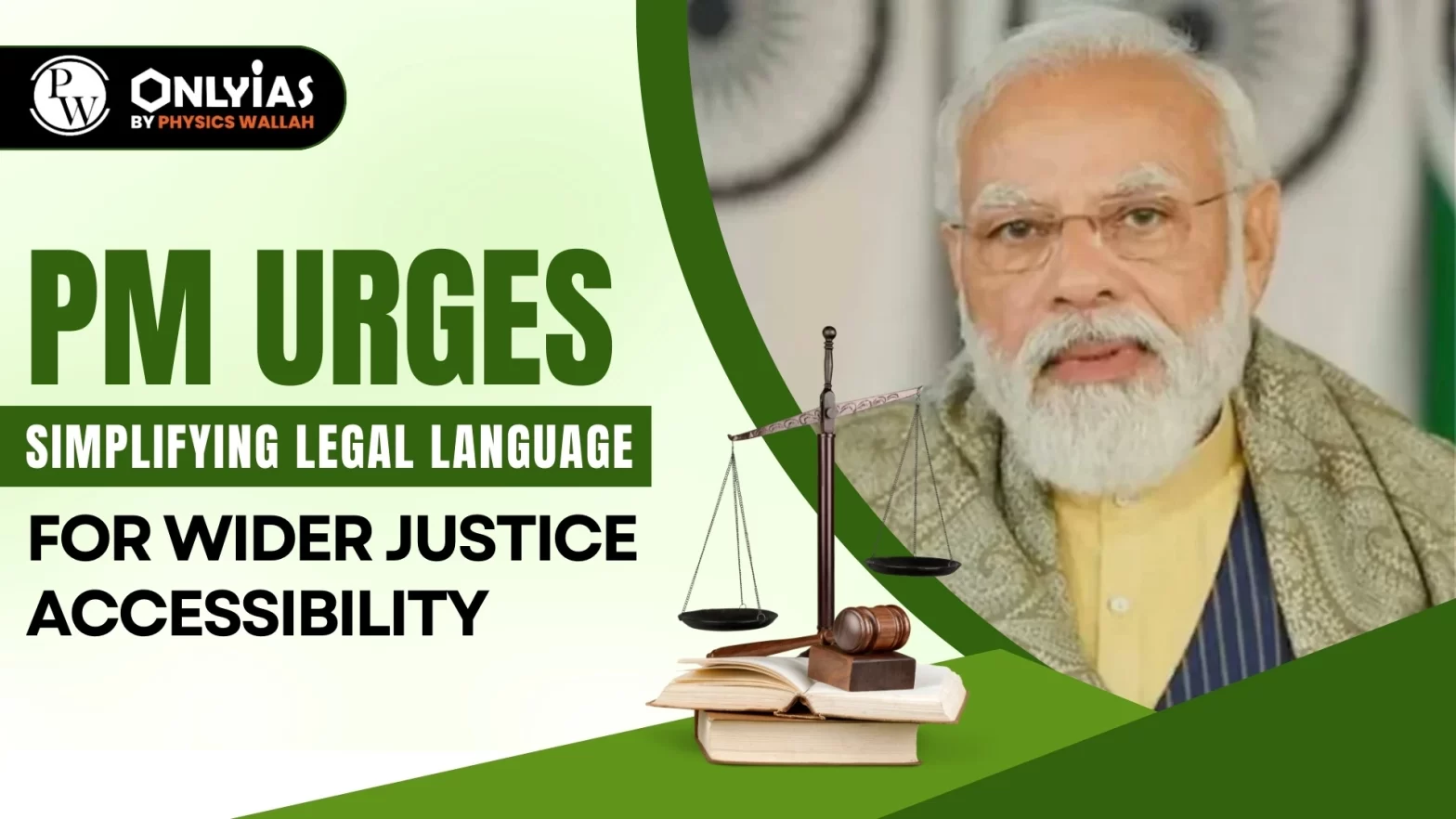Context: This article is based on an Editorial “On Constitution Day, more people-friendly laws” which was published in the Indian Express. Recently, the Indian Prime Minister said that there is a need to simplify laws and draft them in languages that are easy to understand, which would enhance its accessibility to common citizens.
| Relevancy for Prelims: Constitution Day Of India (Samvidhan Diwas), Dr. B R Ambedkar, and Section 213 and Section 214 of the IPC.
Relevancy for Mains: The Government is advocating for the use of simple legal language to simplify laws for the general public, promoting inclusivity, transparency, and empowering citizens. This aligns with constitutional values, promoting accessible justice. |
What is the government’s vision for simplifying legal language?
- Social Justice: The government envisions a legal landscape where language becomes a bridge to justice.
- A Holistic Approach: The aim is to simplify language, empowering citizens with knowledge, and fostering a sense of legal empowerment among the diverse population.
- It includes the development of:
- A comprehensive glossary in multiple languages.
- Rewriting laws in a simplified manner.
- Creating plain language summaries of legal documents.
What is the government’s commitment to the simplification of legal language?
- Rectification of Historical Intricacies: The government’s commitment to simplification serves as a corrective measure, addressing the historical ambiguities and aiming to bring about clarity in legal frameworks.
- International Acknowledgement: On the global stage, the government’s commitment to simplification got recognition from Global Legal Experts and Organizations for their forward-thinking approach.
- Use of Technology: This simplification efforts harmonize seamlessly with the Digital India campaign, leveraging technology to enhance accessibility.
- Online Availability of Legal Information: It would hold the transformative potential of the digital world.
- Holding of Democratic Principles: The government has actively sought public input in the simplification process. This is a democratic approach that ensures the inclusivity of its citizens.
- A Constitutional Spirit: This language simplification resonates with the constitutional spirit, ensuring that justice is not an abstract concept but a tangible reality accessible to every citizen.
Why is there a need for simple legal language?
- Legal Clarity For All Citizens: During the Constituent Assembly debates, Dr. B R Ambedkar, emphasizes that the constitution is for all people of India and also worked by the common people of the country.
- He advocated for legal language to be comprehensible to every citizen.
- Closing Ambiguity: There is ambiguity in language, which acts as a potential loophole in access to justice.
- For Example: The existing language of Section 213 and Section 214 of the IPC raises ambiguity regarding the offense’s completion, necessitating clarification to ensure legal precision and effective enforcement.
- A Channel for Access to Justice: A simple legal language serves as a conduit for understanding one’s rights and responsibilities, and consequently a way for “Access to Justice”.
- Reader-Friendly: By simplifying legal language, it would actively engage measures to streamline language and enhance reader-friendliness.
- Reduction in Legal Disputes: Those disputes that arise due to misunderstandings and misinterpretations.
- India’s Economic Development: A simple legal language significantly contributes to India’s global economic competitiveness as a clearer legal framework creates an environment conducive to investment and business operations.
- India’s Future Development: It would be an attractive career choice that aligns with a broader vision of youth empowerment.
- By imparting valuable legal skills, it would contribute to the nation’s intellectual capital, ensuring the youth with legal knowledge and efficiency.
Conclusion:
The government’s commitment to simplify legal language is not just an administrative exercise, but also a desirable and transformative journey towards inclusive justice. This is a step in the right direction where justice is not a privilege but an inherent right for every individual.
![]() 5 Dec 2023
5 Dec 2023

